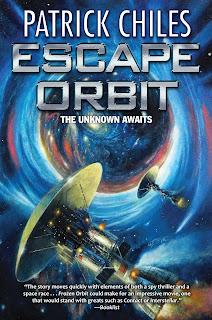 Editor’s Choice and one of Vogue’s Best Books of 2014; Free Men; and The Everlasting, a New York Times Best Historical Fiction Book of 2020. Her writing has also appeared in The Washington Post, The Paris Review, The Los Angeles Review of Books, Oxford American, Granta, and elsewhere. She received a PhD in history from the University of North Carolina at Chapel Hill and an MFA from the Bennington Writing Seminars, and is also the author of We Have Raised All of You: Motherhood in the South, 1750-1835. She lives in New Orleans.
Editor’s Choice and one of Vogue’s Best Books of 2014; Free Men; and The Everlasting, a New York Times Best Historical Fiction Book of 2020. Her writing has also appeared in The Washington Post, The Paris Review, The Los Angeles Review of Books, Oxford American, Granta, and elsewhere. She received a PhD in history from the University of North Carolina at Chapel Hill and an MFA from the Bennington Writing Seminars, and is also the author of We Have Raised All of You: Motherhood in the South, 1750-1835. She lives in New Orleans.
Smith applied the Page 69 Test to her new novel, The Weeds, and reported the following:
The Weeds is unusually structured, broken into several hundred entries about individual plant species (all growing, as it happens, in the Roman Colosseum), so I was eager to see which flower would get the page 69 spotlight. It happens to be Hypericum perforatum, or St. John's wort, which is perfectly representative of the role of plants in this book: if used improperly, it's toxic (skin irritation! nausea! mania and/or death!); in the right doses, it's used as a folk cure for wounds and in modern treatment of depression. My two protagonists -- both female botanical assistants studying the Colosseum flora -- have an intimate understanding of plants' power, even if their male advisors ignore the women's instincts. On page 69, the protagonist from 1854 tries to insert a story about her grandfather's poisoned cows into the entry on Hypericum:Visit Katy Simpson Smith's website.In my separate account for Deakin, I slip this in; surely a botanical student would search in a flora for tales of consequence. (Oh, I am taking to the feeling of consequence!) This journal is brown and bound—my notes for him are loose and tied with ribbon, so I will not mistake the two.My heart aches at how this page encapsulates her struggle for purpose. How rare was the "feeling of consequence" for women in the 1850s? How rare is it for women today? And when she asks whether plants have a larger meaning than science typically affords them, I hope by this point in the book readers will scream, "Yes, they do!" This is a novel that explores emotion, intuition, not just the data of the natural world but its narratives. Most of all, it asks how we can see weeds, and women, and ourselves in that broader, brighter light.
“I told you I wanted no more stories about your ancestors,” he says, the ribbon wrapped around his thumb.
“Yes,” I say, “but could plants serve as more than fact?”
The Page 69 Test: The Everlasting.
--Marshal Zeringue




















